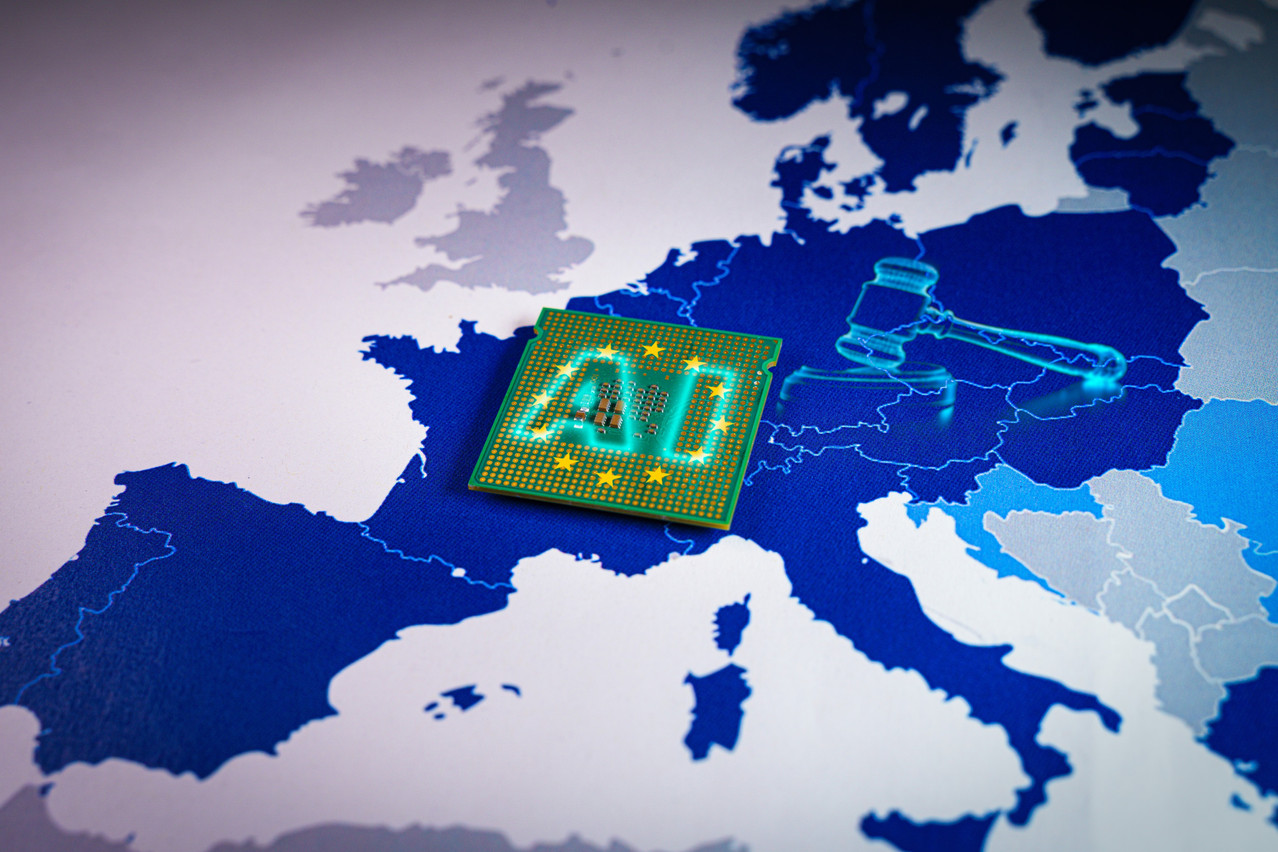To enable the development, deployment and use of artificial intelligence (AI) and encourage research and innovation in the field, all while ensuring the consistent implementation of the applicable regulations, the European Commission has set up its AI Office. It is made up of five units, each with its own specific area of expertise and action. And one of them, called “Excellence in Artificial Intelligence and Robotics,” is based in Luxembourg, under the direction of Cécile Huet, who has been working for the European Commission for more than 20 years.
The Luxembourg team is made up of around twenty people, mainly engineers, but also experts in the humanities, economists, lawyers and financial assistants. The unit manages a portfolio of around 130 AI research, development and deployment projects, notably as part of Horizon Europe, the European Union’s main funding programme for research and innovation. It also coordinates the GenAI4EU initiative, which supports startups and SMEs active in 14 European industrial ecosystems, including robotics, health, production, mobility and climate.
Also to support the development of AI in Europe, Huet’s team provides support to project developers, who benefit from the testing and experimentation facility (TEF) set up by the commission and which started operating in January 2023. The initiative consists of offering test infrastructure to developers, one of which is located in Luxembourg, so that they can test their projects in environments close to reality. TEFs are offered in four sectors: agri-food, health, manufacturing and smart cities and communities. This represents a budget of €220m, 50% of which is funded by the commission and the rest by the member states concerned or the organisation itself.
The advantage of a unit based in Luxembourg
The Luxembourg unit has actually existed since 2004, when it was known as the “Cognitive Systems Unit.” As technology evolved, it was then dedicated to intelligent robotics, and was later designated as the AI unit. In 2018, another unit was created for coordination and regulatory aspects. Now the unit responsible for excellence in AI and robotics, the Luxembourg team naturally works with the other units based in Brussels that make up the AI Office.
They collaborate in the form of task forces on cross-cutting issues that concern several units, because the ultimate aim is to create a genuine ecosystem for AI players, from research to the deployment of their solutions. Having part of the office based in Luxembourg has a certain advantage, as that is also where the unit in charge of data, headed by Yvo Volman, is based.
This collaborative work also ensures more effective implementation of the new regulations on AI (the ). The office is responsible for implementing it, making it easier to understand and informing the players involved. For Huet’s unit, this will mainly involve communication and simplification, as research is excluded from the regulations.
The AI office will eventually employ more than 140 people and has big ambitions. One of its main objectives is to take on increasingly large projects in terms of size and budget, in order to have a greater impact on the market. With the €4bn AI innovation package launched at the beginning of 2024, the commission wants to put Europe’s skills on par with what is being done elsewhere, particularly in the United States, in order to create 100% European models. This will involve making data computing capacity resources available through EuroHPC, a joint initiative by the EU, member states and private partners aimed at developing a world-class supercomputing ecosystem in Europe.
This article was first published in French on . It has been translated and edited for Delano.
